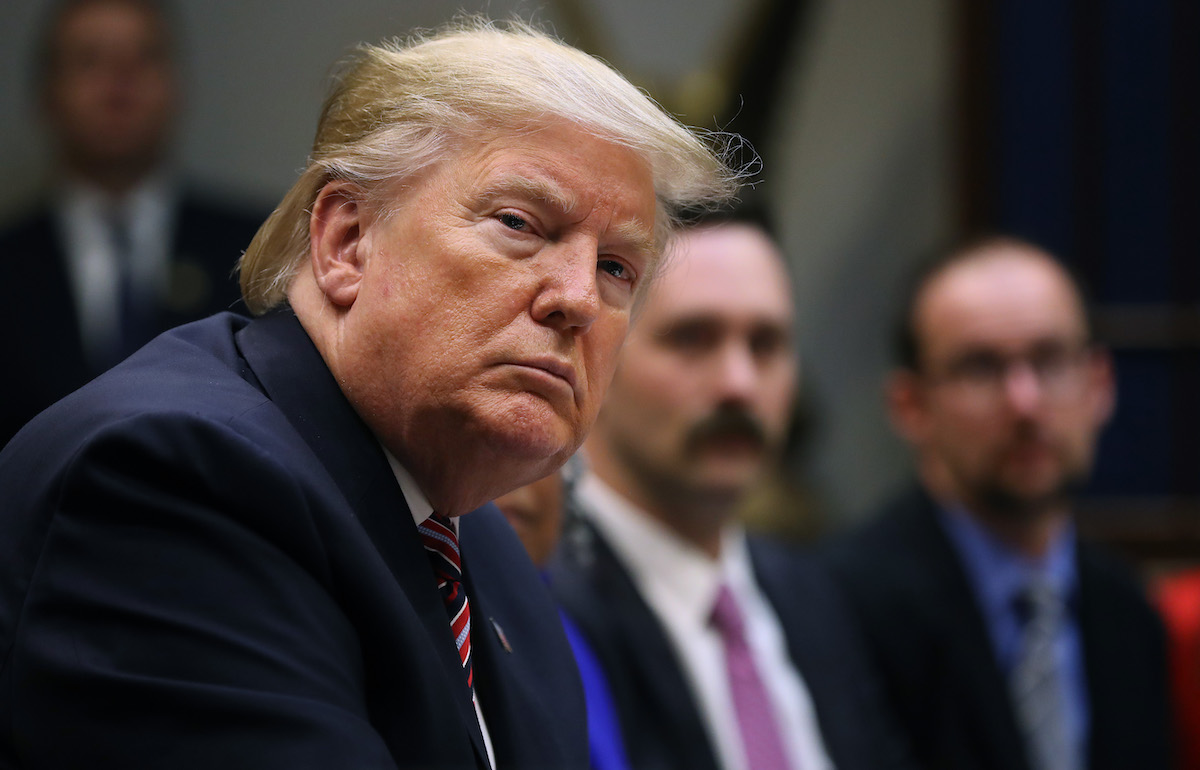In light of the coronavirus crisis, Ohio moved their primary election from last Tuesday all the way up to June. The next primary contest is March 29 in Puerto Rico, then Hawaii, Alaska, and Wyoming April 4, followed by Wisconsin on April 7. In light of the coronavirus, Democrats in Wisconsin have sued to extend early voting. Georgia, Kentucky, Louisiana, and Maryland have all delayed primaries, as well.
All this upheaval has left many asking: What does this mean for the November general election? And can our autocrat-in-chief suspend the election?
The short answer, thankfully, is no. State elections and primaries are at the discretion of, you guessed it, the states. That’s one of the main reasons our primary process is so messed up. It goes state by state, and they have wide leeway to set their primaries whenever they like, usually by statute.
Postponing a primary isn’t easy, as we saw in Ohio. The courts there, at first, declined to let Governor Mike DeWine delay the election, but after an order from the state’s top health official to close polling places, the court was left with no choice but to allow the election to move to June.
The federal election would not be so easy to move, since the date is dictated by federal statute, and the logistics of the local elections are controlled by the states. 2 U.S. Code § 7 says: “The Tuesday next after the 1st Monday in November, in every even numbered year, is established as the day for the election, in each of the States and Territories of the United States.”
As much as he would like it to be true, Donald Trump cannot defy federal law. He can try, but even this Supreme Court would stop him based on legal precedent alone. A declaration of emergency doesn’t give him these powers, nor can he control how individual states conduct their elections.
It’s not Trump we should be worried about here, but the states. They could indeed do what Ohio did and try to close polling places, but that would be much harder to do in a general election. But the difference between the primaries and the general is that states have time now to make accommodations. It’s up to states and the federal government to eliminate the requirement of an “excuse” for absentee voting and take other measures.
Another fun fact? Donald Trump and Mike Pence’s terms as president and vice president are up in January whether there is an election or not, meaning the constitutional rules of succession kick in. Translation: If there’s no election and Democrats maintain their majority in the House, we get President Nancy Pelosi.
If nothing else, this crisis is a wake-up call that states need to change how voting is done, and before the November election, all states need to make sure their voting procedures are accessible, fair, and safe. We’re fans of vote by mail and hope that it goes national before November.
(via: CNN, image: Chip Somodevilla/Getty Images)
Want more stories like this? Become a subscriber and support the site!
—The Mary Sue has a strict comment policy that forbids, but is not limited to, personal insults toward anyone, hate speech, and trolling.—










Published: Mar 19, 2020 11:53 am